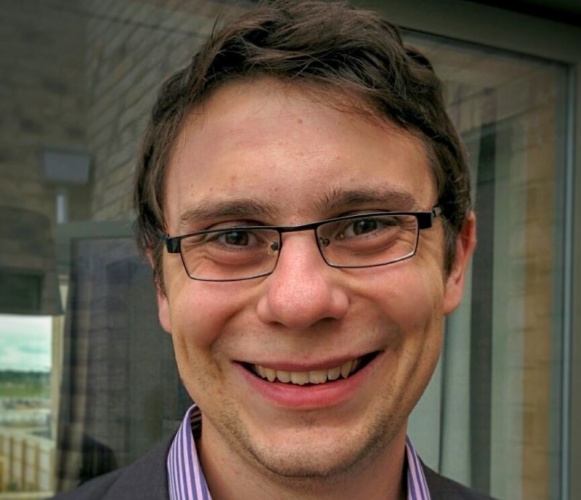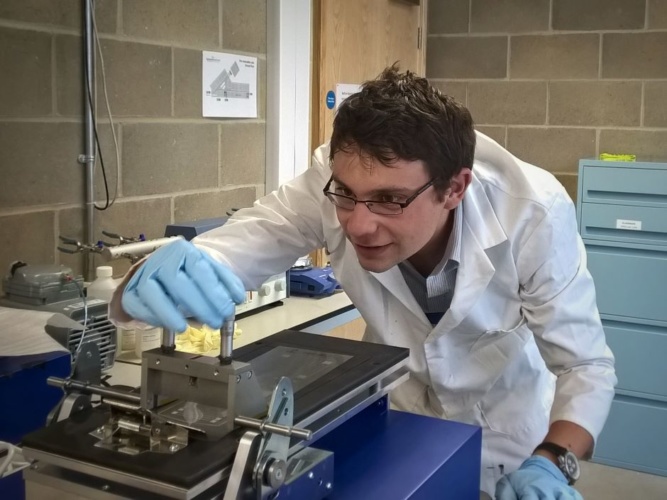 Harry Cronin (pictured) completed the Fellowship in 2018, gaining his EngD in Materials Science from the University of Surrey while simultaneously working at DZP Technologies, which specialises in printable electronics.
Harry Cronin (pictured) completed the Fellowship in 2018, gaining his EngD in Materials Science from the University of Surrey while simultaneously working at DZP Technologies, which specialises in printable electronics.
The funding, up to £100,000, gave him the opportunity to do extensive research in one area over several years, while working for a small company which may otherwise not have been able to support it.
Royal Commission fellowship supports advanced radar research
In the last of his four years conducting open research on a class of materials known as halide perovskites, Harry both researched a new post-processing technique as well as designing a new type of perovskite ink. These innovations will make the printing of solar panels faster and more economical, a significant step in enabling the more widespread uptake in solar power. For Harry this meant getting published in a high impact journal at the very start of his career, while the partnering company was able to open up a new product line based on these advancements.
Solar power remains one of the most promising ways of abating our reliance on fossil fuels, with global solar power increasing by 24% in 2019 to make up over 2.5% of the world’s energy use. Printed solar panels are generally regarded as the future, due to the highly efficient, lightweight results.
During his broad research, Harry also investigated the use of perovskites in other technologies. One example is their application in flexible X-ray detectors, which have the potential to revolutionise scans like mammograms.

In addition to covering students’ University tuition and a proportion of their salary, the Fellowship reimburses Fellows’ travel expenses to conferences. Harry, for instance, was able to attend the International Conference on Materials for Advanced Technologies in Singapore and present his work on solar cells. Harry’s presentations led to increased research collaborations and formed new commercial partnerships for DZP Technologies.
At the end of his EngD, Harry’s combination of academic expertise and industry experience enabled him to continue his work with DZP, seamlessly transitioning into the role of R&D manager.
In January 2020 Harry joined Iprova as an Invention Developer, working on the AI-augmented creation of inventions in a range of technical fields. Within this role Harry has been able to use his broad technical background and AI-driven software to invent novel systems which solve problems for some of the world's largest companies.
Originally set up by Prince Albert, the Royal Commission funds innovation and creativity in British industry. Students interested in finding out more about the Industrial Fellowship can find comprehensive information here, including how to apply. Applications open in October.




Glasgow trial explores AR cues for autonomous road safety
They've ploughed into a few vulnerable road users in the past. Making that less likely will make it spectacularly easy to stop the traffic for...